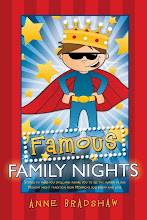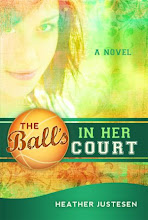by Tristi Pinkston I love words and language. I'm fascinated by the way you can say the same thing in a hundred different ways. I love the nuances of words, and how moving a comma gives a sentence an entirely different feel. I also love learning new words and inserting them into my writing and my vocabulary.
I love words and language. I'm fascinated by the way you can say the same thing in a hundred different ways. I love the nuances of words, and how moving a comma gives a sentence an entirely different feel. I also love learning new words and inserting them into my writing and my vocabulary.
I'm a little concerned at the trend I see today to dumb down our writing so everyone can understand it. How am I supposed to know what Betty Jean down the street has or has not been exposed to in her reading, and so how am I supposed to know what's safe to use or not? The trend toward dumbing down leads to lazy readers, and a backward step in education. If we're supposed to be learning from our reading, but our reading doesn't teach us anything, really, what's the point?
Okay, I got off on a little bit of a tangent there. I was about to head off into a discussion about new thoughts and ideas as presented through fiction, but I think I'll save that for next time and today, just focus on the original intent of this blog, which is to discuss putting new vocabulary words into our books.
First off, I don't think we should just throw long words in there for any old reason. If the character wouldn't use that word, or if it's one that we're using just to show off how cool and educated we are, then it obviously doesn't have a place. On the other hand, if it's in keeping with your character, or it does fit the situation perfectly, then you should use it.
Second, give enough context so the reader can get a sense of what the word means without having to race for the dictionary. I believe it was in the book "Little Men," by Louisa May Alcott, where I first hit upon the word "fractious." It means grumpy, testy, irritable, troublesome. I used it in one of my novels (not yet published, but soon) but I also showed the character acting grumpy, testy, and irritable. This allowed the reader to understand the meaning of the word by observing what was going on.
Third, make sure you really know what the word means before you use it. Working as an editor, I sometimes see an author use a word that sounds like the one they want, but isn't quite. Or they'll choose a word that means almost what they're looking for, but not quite. If you're not very well acquainted with a word and you don't know its ins and outs and all its connotations, it's best to leave it out - or look it up carefully before using it.
You don't have to keep all long words out of your manuscript - in fact, I encourage you to use them from time to time. I don't recommend more than two or three per book, and I definitely recommend putting enough explanation in the context that the reader gets where you're coming from. Let's have a little more fun with language and really tap into all the rich resources we've been given to tell a story and communicate all that's in our hearts.
Wednesday, October 21, 2009
Say What?
Posted by Tristi Pinkston at 12:40 AM
Labels: English language, Tristi, vocabulary, Writing Tips
Subscribe to:
Post Comments (Atom)

















3 comments:
Great post. I hate the "dumbing down" trend. I try not to use long, complicated words in my work, but I also won't shy away from them just so the least educated person can read it. The author shouldn't use a book just to show off their intellect, but they should use a word if it's in proper context and applicable. I'm not an idiot and I refuse to write like one.
Another thing to think about. Most people who read generally like the written word. So when one shows up that we don't know, we're willing to look it up to find out what it means--if we haven't figured it out from the context of the book.
Dumbing down is just plain dumb.
Nichole
I love language too! It's so amazing!
Post a Comment